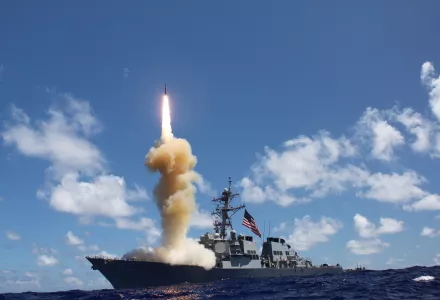The Stability of Nuclear Thinking: Grand Strategy, Nuclear Weapons, and the Absence of Evaluation
A Project on Managing the Atom seminar with Mark Bell, Assistant Professor in the Department of Political Science at the University of Minnesota.
A Project on Managing the Atom seminar with Mark Bell, Assistant Professor in the Department of Political Science at the University of Minnesota.

Why do states rarely evaluate the role that nuclear weapons play in their grand strategy or change how they conceive of the utility of their nuclear weapons? This question has implications for our understanding of the role that nuclear weapons play in international politics, the way in which “nuclear learning” occurs (or does not occur), and important current policy debates. However, existing theories and explanations shed limited light on this puzzle. The stability of nuclear thinking that we observe in the historical record is puzzling because we do see variation between nuclear-armed states in how they conceive of the utility of nuclear weapons; states are not generally wholly resistant to evaluation and innovation with respect to other military technologies; and nuclear-armed states’ security environments often change in fundamental ways.
In this seminar, Mark Bell offers a typology of the roles that nuclear weapons can play within a state’s grand strategy. Second, he offers a theoretical explanation for the path dependence of nuclear thinking, identifying a range of mechanisms that under normal circumstances prevent states from re-evaluating and shifting their nuclear thinking. He argues that only periods of grand strategic change—when a state’s entire political-military strategy is in flux—can overcome the powerful forces inhibiting shifts of nuclear thinking. Third, he examines a range of observable implications of the argument empirically using three hard cases: U.S. nuclear thinking since 1945, the failed efforts to shift U.S. thinking in the Clinton administration, and the South African decision to give up its nuclear arsenal.